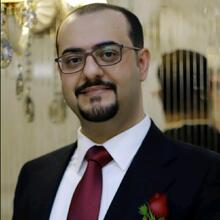Introducing Shahabeddin
 Shahabeddin received his first university degree in 2013 – a Bachelor’s degree in Health Information Technology (HIT) from Shiraz University of Medical Sciences in Iran. He then went on to attain a Master of Science in HIT, a Master of Public Health in Health Policy, and a Master of Businesses Administration at Shahid Beheshti University of Medical Sciences, before completing his PhD in HIT from Tehran University of Medical Sciences, a top medical university in Iran. Following his PhD, Shahabeddin worked at Mazandaran University of Medical Sciences in Iran as Assistant Professor for three years gaining experience in the education and research field before starting his postdoc appointment at UWaterloo in January 2023. Now he is working in several projects including “develop standards for smart homes and communities interested in implementing active assisted living (AAL) technologies”, “develop standards for AgeTech”, “identifying the applications of ChatGPT in healthcare” and “development of a big data ecosystem to support infodemic management using social media public health data” at UWaterloo.
Shahabeddin received his first university degree in 2013 – a Bachelor’s degree in Health Information Technology (HIT) from Shiraz University of Medical Sciences in Iran. He then went on to attain a Master of Science in HIT, a Master of Public Health in Health Policy, and a Master of Businesses Administration at Shahid Beheshti University of Medical Sciences, before completing his PhD in HIT from Tehran University of Medical Sciences, a top medical university in Iran. Following his PhD, Shahabeddin worked at Mazandaran University of Medical Sciences in Iran as Assistant Professor for three years gaining experience in the education and research field before starting his postdoc appointment at UWaterloo in January 2023. Now he is working in several projects including “develop standards for smart homes and communities interested in implementing active assisted living (AAL) technologies”, “develop standards for AgeTech”, “identifying the applications of ChatGPT in healthcare” and “development of a big data ecosystem to support infodemic management using social media public health data” at UWaterloo.
Shahabeddin describes himself as a passionate researcher, lecturer and consultant who is seek to work with students, researchers, startup teams, companies and managers that are active in digital health.
Finding a postdoc position
Shahabeddin’s current postdoctoral position is funded by his supervisors, Professor Plinio Morita, together with funding through the Canadian Standras Associateion (CAS). As Shahabeddin talks about strategies to find postdoc opportunities, it’s clear he put a lot of time, effort and commitment into finding a position that will help him move forward with his career goals! Specifically, he recognized that competition for postdoctoral positions can be intense, so “investing time and effort into preparing strong and tailored applications is essential”.
One area Shahabeddin discusses as an important part of this preparation is establishing a professional presence on prominent social networking platforms, as he says “maintaining a strong profile on these platforms should be considered as an integral component alongside your well-crafted CV”. In fact, Shahabeddin’s profile on LinkedIn is easy to find and begins with an impressive “about” section, outlining his experiences and area of research.
It's clear that being proactive and being committed to finding a position that would be a good fit were two of Shahabeddin’s biggest assets in his efforts to successfully secure hist postdoc position. By diligently researching postdoctoral opportunities, contacting potential mentors or principal investigators (PIs), seeking out recommendation letters, ad networking and attending conferences, and preparing a strong tailored application (including proofreading!), Shahabeddin’s hard work paid off.
Advice to Future Postdocs
For individuals who are seeking postdoc positions, Shahabeddin offers some well laid out tips to keep in mind:
- “Good CV: Ensure that your CV is well-structured, highlights your qualifications, research experience, and achievements. Tailor it to the specific requirements of each position you apply for.
- Professional profiles: Maintain active and professional profiles on academic and professional networks, such as LinkedIn, ResearchGate, and academia.edu. Showcase your expertise, publications, and collaborations.
- Active monitoring: Regularly monitor job boards, university portals, and social media platforms for job postings and networking opportunities. Stay updated on the latest openings and engage with relevant communities.
- Professional application: Approach the application process professionally by submitting well-crafted cover letters, research statements, and recommendation letters. Tailor each application to the specific position and institution.
- Good interview skills: Prepare for interviews by researching the institution, the research group, and the interviewer(s). Practice answering common interview questions and be ready to discuss your research in depth.
- Flexibility and passion: Demonstrate flexibility and a willingness to adapt to new research environments and projects. Showcase your passion for your field of study and the specific research topic of interest.
- Patience: Recognize that the process of finding a postdoctoral position can take time. Be patient and persistent, understanding that the right opportunity may come along when the timing is right.
- By incorporating these tips into your job search strategy, you can increase your chances of securing a postdoctoral position that aligns with your goals and aspirations.”
Finally, Shahabeddin doesn’t forget about the difficulties and challenges associated with looking for postdoctoral positions and says that it’s “understandable and natural to feel fatigued and perhaps even discouraged at time” but encourages others to “stay committed and resilient on your journey” and “remember that persistence and perseverance are often key ingredients to success”.
Related Resources
- In addition to finding postdoctoral positions through a supervisor with funding, you may be interested in applying for postdoctoral funding opportunities, and finding a supervisor who is willing to supervisor you. For information on funding opportunities available, visit our find postdoc funding webpage.









